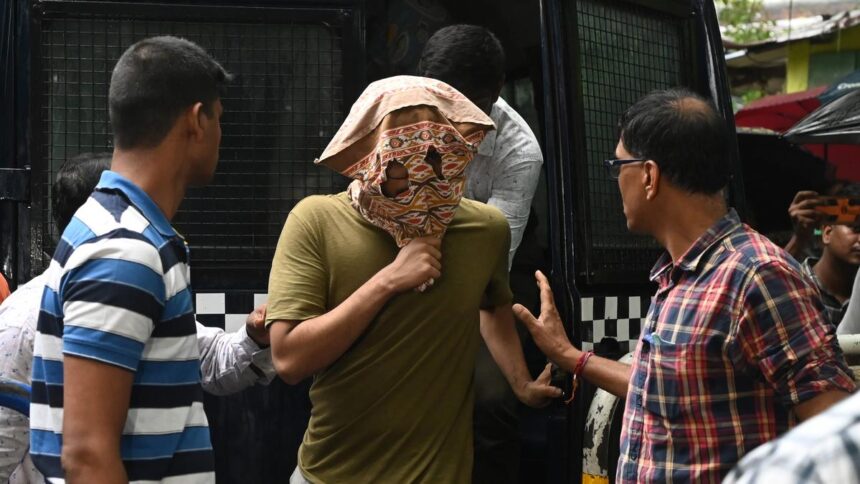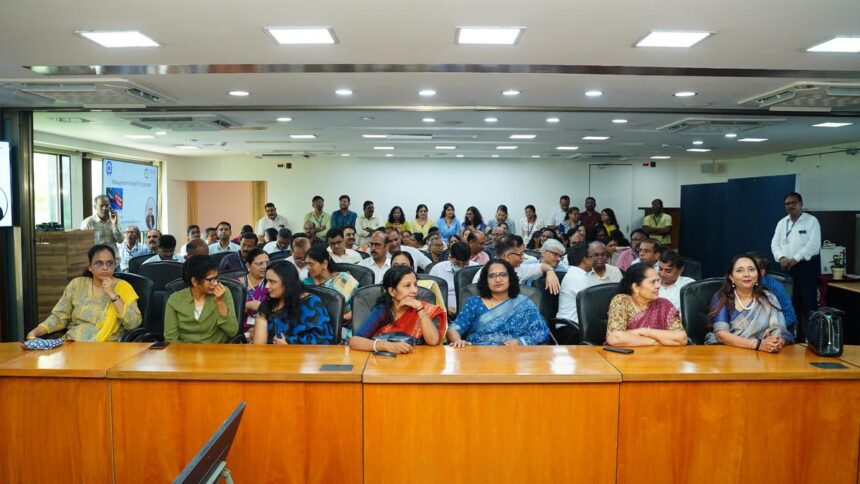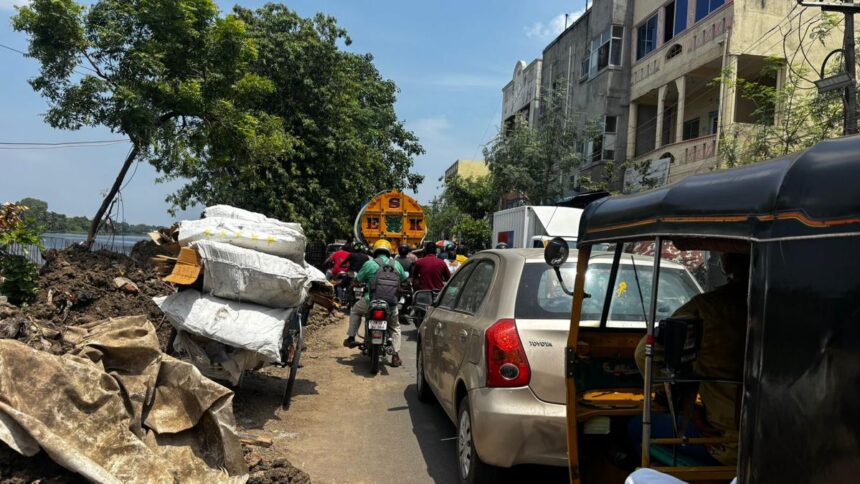
AI-powered traffic signals will adapt in real time to the flow of traffic and coordinate across multiple junctions to reduce congestion in Visakhapatnam. File
| Photo Credit: The Hindu
The city police are all set to use Artificial Intelligence (AI) for traffic management and real-time surveillance as part of the measures to improve public safety and law enforcement.
This AI-driven system aims to address issues such as traffic enforcement and identification of criminals.
In an interaction with The Hindu, Visakhapatnam Police Commissioner Shankabratha Bagchi said that one of the biggest challenges the urban police face is a shortage of personnel, especially in the traffic department.
Traffic management comprises two core tasks — regulation and enforcement. While regulation involves regulating the flow of vehicles, enforcement is focused on identifying and penalising violations.
“On a daily basis, we find many traffic violations such as overspeeding, riding without helmets, not wearing seat belts, reckless and triple riding, minor driving, and overloading. Many of these lead to fatal accidents,” Mr. Bagchi said.
“Currently, the traffic police are engaged in manual checks and capturing photographs to generate e-challans against the violators. With an AI-based system in place, these tasks can be automated, allowing traffic personnel to focus more on regulation duties at major junctions,” he said.
The new system will use Automatic Number Plate Recognition (ANPR) to detect violations and automatically generate e-challans. AI-powered traffic signals will adapt in real-time to the flow of traffic and coordinate across multiple junctions to reduce congestion.
“For instance, if a green signal allows traffic to pass through Hanumanthawaka Junction, the system ensures that vehicles will receive another green light at Venkojipalem Junction. This seamless coordination improves traffic flow and reduces waiting time,” Mr. Bagchi explained.
He said that the IT companies working with the police are developing these real-time synchronisation features.
In addition to improving enforcement and signal coordination, AI models will analyse traffic data to predict congestion patterns, suggest re-routing options during VIP movements or festivals, and help manage traffic more efficiently.
Facial Recognition Cameras
Another key feature of the initiative is the installation of Facial Recognition Cameras (FRCs) at major traffic junctions. These cameras will capture images of individuals and match them against databases from the National Crime Records Bureau (NCRB), State Crime Records Bureau (SCRB), and City Crime Records Bureau (CCRB).

“If a match is found with a criminal database, the system will instantly alert on-duty personnel, enabling quick and proactive response,” the Police Commissioner said.
Several IT companies have presented the project to Visakhapatnam MP M. Sribharat, Collector M.N. Harendhira Prasad, and other top officials. Financial details are currently being finalised and will be submitted to the government for approval.
“Once approved, the system will be implemented in phases, beginning with the Beach Road stretch, followed by other key junctions along the NH-16. These locations will be equipped with multiple ANPR and facial recognition cameras offering 360-degree surveillance,” he said.
Published – July 25, 2025 09:24 am IST






















